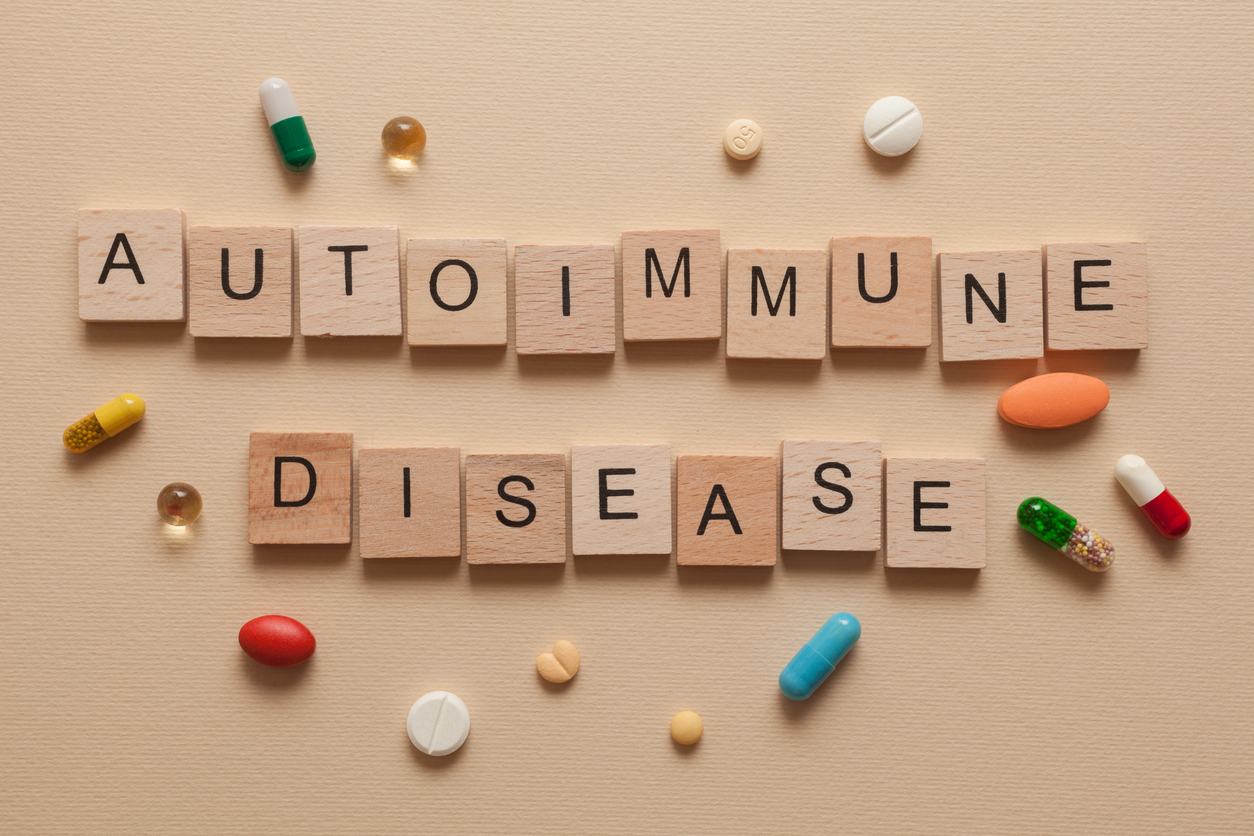What is an autoimmune disease?
We hear this word so often as part of our current culture. I began to wonder just exactly what an auto immune disease was. So I looked it up, and according to Wikipedia:
Autoimmune diseases arise from an abnormal immune response of the body against substances and tissues normally present in the body (autoimmunity).
In other words, your body fights itself and the natural functions that occur daily. Yikes, no wonder it’s such a large concern! There is a huge list (more than I ever knew) of autoimmune diseases online. Frankly, I was shocked. I did recognize some of the disorders on the list, but had no idea they were autoimmune disorders. Some of these include:
- Thyroid disorders
- Rheumatoid arthritis
- Crohn’s disease
- Lupus
- Gluten, dairy or soy intolerances
- Multiple sclerosis and
- Atopic dermatitis just to name a few.
What do we need to be concerned about when dealing with autoimmune diseases and essential oils?
We want to be conscious that we are not further inflaming or boosting immune function since auto-immune diseases are the immune system attacking your body. You don’t want to double your body’s effort in attacking itself! Essential oils you may consider leaving out of your stash are: Palmarosa, Rosalina, Immune Aid or Immune Boom. Any essential oil that is listed as an immunostimulant should be avoided or used only occasionally in low doses.
It’s a good idea to understand that while essential oils are very useful, they are not the perfect solution for every situation. Sometimes using a hydrosol or an herbal preparation are necessary and safer! Before using a new product always consult with a Naturopathic Physician, Certified Aromatherapist or other qualified health professional.
Put in the time to do the research, keeping in mind that marketing is a powerful tool. Seek out sources other than a company website or salespersons. There are many books, websites and other information you can find that are not linked to any one company. Learn more about the concern you want to address and ask professionals who will consult with you before beginning any new regimen.
So can you still use essential oils?
Short answer, yes. Choose oils that do not have an immune-stimulating effect. This is a challenge, as many essential oils can stimulate the immune response to varying degrees. Here is a limited list of essential oils that you can consider using with no (or very little) boost to the immune system.
- Cajeput essential oil has long been used for sore throats and it’s antiviral action makes it a great option for cold sores. Use Cajeput to help with pain such as muscle stiffness, muscle cramping, and menstruation. Diffuse Cajeput essential oil to help relieve the symptoms from the flu or cold. It is also great to add to a bath or massage oil to help with aches and pains. For relief from an insect bite or skin ailment, add a small amount to your favorite carrier oil and apply twice a day.
- Cinnamon Cinnamon Leaf essential oil has been used as an anti-inflammatory and local anesthetic for many years. It is very therapeutic and if used in the right dilution, can be an effective essential oil for acne, chronic pain and inflammation. Combine Cinnamon Leaf and Clove Bud at 0.6% dilution in your favorite carrier oil to help with chronic pain. Cinnamon Leaf is also a great oil to ease the symptoms of cold and flu. Diffuse in the air to help combat a sickness.
- Citronella essential oil to help combat cold and flu, diffuse into the air equal parts of Citronella and Cinnamon Leaf. Add to your favorite carrier oil to help with perspiration. Add 1 drop of Citronella and 2 drops of Tea Tree to 1 Tablespoon of Coconut oil to use on fungal skin infections.
- Clary Sage essential oil is the perfect hormone balancing oil to help ease symptoms caused by women’s issues. Use to treat PMS, hot flashes, depression, anxiety and insomnia. For menstrual pain, combine Clary Sage with Geranium, Marjoram and Carrot Seed. Research suggests that for some people, Clary Sage essential oil is more effective anti-stress oil than Lavender. Add to your favorite carrier oil and use as a daily moisturizer or diffuse into the air for its mood-enhancing properties
- Cypress essential oil can be used to ease breathing and may be helpful for people with asthma. Use to relieve tight muscles, rheumatism and the swelling and pain of varicose veins. It is also useful as a deodorant. For this, add equal parts of Cypress, Sandalwood and Lavender to your favorite carrier. Diffuse Cypress into the air to help ease breathing.
- Ginger Traditionally used for its warming action, Ginger essential oil aids digestion, stimulates blood flow and helps relieve nausea, muscular or menstrual pain. Add 2 drops Ginger essential oil with 2 drops Coriander to 2 tablespoons of bubble bath along with a 1⁄2 cup Epsom salt and run into a warm bath to help relieve lethargy, nausea, colds and sickness. When added to a carrier oil or lotion, it can help with joint pain, muscle aches, poor circulation and to disperse bruises. Use in a 2% – 5% dilution for topical use.
- Geranium The therapeutic properties of Geranium Bourbon essential oil include the being used as an astringent, hemostatic, diuretic, antiseptic, anti-depressant, tonic, antibiotic, anti-spasmodic and as an anti-infectious agent. This uplifting oil has a great all-over balancing effect and this extends to the skin, where it helps to create a balance between oily and dry skin. Use Geranium Bourbon to relieve feelings of stress and anxiety, promoting a sense of inner peace.
- Juniper Berry When diluted into the air Juniper oil can be used for the treatment of addictions, nervous tension, over-indulgence of food and to stimulate the nervous system and bolster the spirit. Add 2-4 drops diluted in a tablespoon of bubble bath to a warm bath to help with arthritis, cellulite, nervous tension, cystitis, pain in passing urine, gout, swollen joints, liver problems, muscle fatigue and overweight.
- Laurel Leaf essential oil has antiseptic, anti-bacterial, and anti-fungal properties and can be used to treat scars, acne pimples, boils and scabies. Use as a tonic to the hair to aid with dandruff and stimulate hair growth. Laurel Leaf Oil has strong effects on the nervous system. Its anti-spasmodic and analgesic properties making it mildly narcotic. Along with its sedative properties, it is used for neuritis, depression, anxiety, fear, and psychosis. Its stimulating and warming properties produce fire and warmth in one’s emotions, bringing awareness, courage, and confidence.
- Patchouli For acne, dermatitis, and eczema, add a few drops to a carrier oil or lotion and apply directly to affected area. Use Patchouli as a deodorant or antiperspirant by adding 2-3 drops to a carrier oil and dabbing your underarms. Diffuse Patchouli essential oil into the air to help alleviate anxiety. For athletes foot or fungal infection, add a few drops to a carrier oil and apply to infected area.
- Roman or German Chamomile – Chamomile Roman essential oil is greatly known to help with insomnia. Use to ease aches and pains in muscles and joints. It is a relaxing oil and is great to help with stress. Diffuse Chamomile Roman essential oil into the air to help with stress, migraines, and depression. Add 1-3 drops each of Chamomile Roman and Chamomile German and 1 drop of Peppermint into a bath or favorite carrier oil to assist muscle aches or arthritis. Chamomile German (Blue) essential oil has calming properties. In research involving teenagers with ADHD, German Chamomile oil had a therapeutic effect. All evidence shows that this essential oil reduces stress. Chamomile German is also an excellent anti-inflammatory and can assist with nasal allergies, cuts, wounds and muscles, tendon and ligament pain. It is one of my favorite oils to dilute in a bubble bath and add to a warm relaxing bath. Add equal amounts of German Chamomile, Roman Chamomile, and Peppermint to your favorite carrier oil and gently massage to ease muscle or joint pain.
As always, direct any questions to our Certified Aromatherapist at aromatherapist@planttherapy.com. We welcome questions, comments or concerns. Please check out our Facebook page Safe Essential Oil Recipes.
by Plant Therapy



